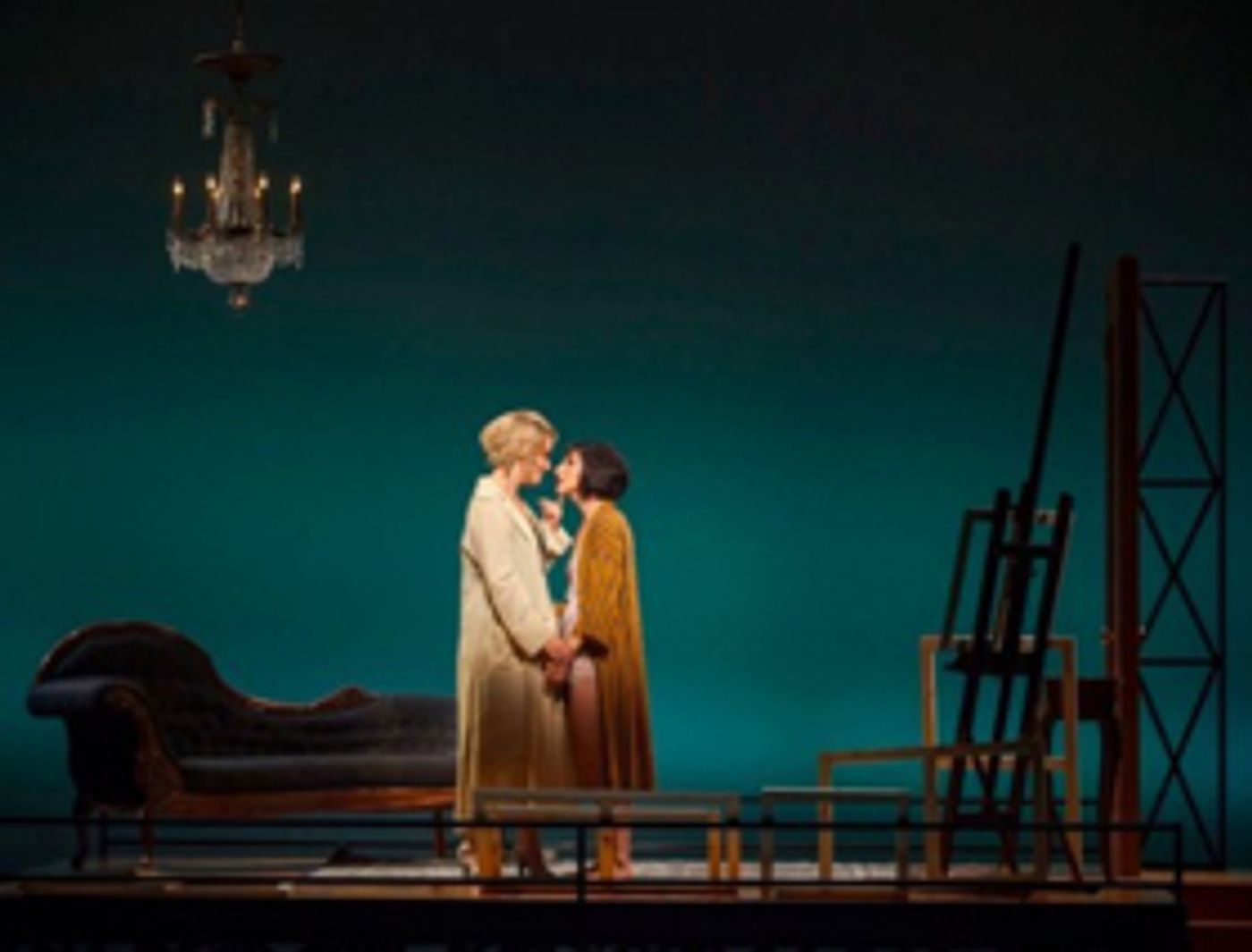Review Roundup: What Did the Critics Think of LEMPICKA, Starring Carmen Cusack and Eden Espinosa, at the Williamstown Theatre Festival?

Featuring Tony nominee Carmen Cusack and Eden Espinosa, the world premiere of the musical Lempicka is playing at the Williamstown Theatre Festival. Lempicka is directed by Tony nominee Rachel Chavkin, with music by Matt Gould and book and lyrics by Carson Kreitzer.
Fleeing the Russian revolution and leaving behind a world of opulence and wealth, aristocrat Tamara de Lempicka (Espinosa) and her beloved husband Tadeusz (Andrew Samonsky) are forced to make a new life.
In the rising tide of fascism, Tamara takes to painting to survive, and when she meets the free-spirited Rafaela (Cusack), a prostitute on the fringes of Parisian society, she's torn between the life she cherishes with her husband and the passion, ambition, and possibility awoken in her by her new muse.
Inspired by the life of the artist who transformed herself from penniless refugee to star of the art world when the world itself teetered on chaos, Lempicka looks at the beauty and danger of one painter pursuing it all.
The production is now on stage through August 1st.
Let's see what the critics are saying...
Ben Brantley, The New York Times: "Lempicka" might be called a woke throwback. It's an old-fashioned musical, at least if you think of "Evita" and "Les Miserables," the blockbusters that ruled Broadway three decades ago, as old-fashioned. These were period shows of epic sweep, with propulsive electronic scores that force-marched you across decades of political struggle and strife.
Steve Barnes, TimesUnion: Given full access to the grand resources of a Williamstown Theatre Festival Main Stage production, director Rachel Chavkin, choreographer Raja Feather Kelly, scenic designer Riccardo Hernandez, lighting designer Bradley King and costume designer Montana Levi Blanco create a remarkable visual spectacle that often distracts from the narrative weakness. With a vast white scrim as a backdrop, visible rigging to the sides and rolling elements including doors and rooms that aren't intended to seem realistic, "Lempicka" is self-consciously theatrical, as befits an artist who largely created herself and craved the artificial illumination of fame.
J. Peter Bergman, The Berkshire Edge: With the exception of one song performed by a representation of Josephine Baker, another notorious bisexual woman of the time (not identified in the cast list, but sung, I believe, by Grace Porter), the score is principally a constant thrumming, thrusting, beat-driven, unmemorable collection of musical moments in which the same lyrics are repeated and repeated rather than developed. There is a sexual excitement in the score, but not much relevance and nothing much that delineates any connection or representation of the World War I years, the Roaring 20s, the heartsick 1930s or the big-band 40s. There are no ballads in Act One, and a few more acceptable songs in that vein in the second act. While the score has excitement, it has no true melodic connection with the ear, mind or heart of the listener.
- To read more reviews, click here!
- Discuss the show on the BroadwayWorld Forum
Reader Reviews
Videos

